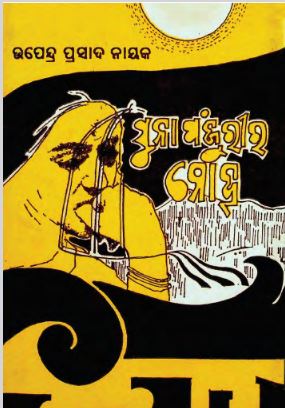Suna Panjurira Moha, penned by Upendra Prasad Naik and published in 1997, is a remarkable Odia storybook that captures the richness of human emotions and the complexities of relationships. The title translates to “The Enchantment of the Golden Door,” a metaphor that symbolizes opportunities, aspirations, and the allure of dreams. In this compilation of stories, Naik deftly weaves together narratives that explore the varied facets of life, love, ambition, and the struggles faced by individuals in modern society.
The stories in “Suna Panjurira Moha” exhibit Naik’s deep understanding of human nature and societal dynamics. Each tale is intricately crafted, with vivid characters who navigate the challenges of their personal and social environments. The author has a unique ability to make the readers feel connected to the characters, as they grapple with their desires, disappointments, and moral dilemmas.
One of the central themes in the book is the pursuit of dreams. The characters in Naik’s stories often find themselves at a crossroads, facing choices that require them to weigh their aspirations against societal expectations. Through their journeys, readers can reflect on their own pursuits in life and the sacrifices that often accompany the chase for personal fulfillment. The narrative provides an honest portrayal of the struggles many face in balancing their ambitions with parental expectations, cultural norms, and economic realities.
Another significant aspect of the book is its exploration of relationships, particularly familial bonds and friendships. Naik captures the nuances of these connections, depicting moments of joy, conflict, and reconciliation. The stories delve into how love can be both a source of strength and a point of tension, revealing the complexities that lie in human connections. For instance, in one poignant tale, the author narrates the story of a father and son whose relationship is tested by the son’s desire to break free from traditional roles, ultimately leading to a deeper understanding between them.
The narrative style of “Suna Panjurira Moha” is marked by Naik’s lyrical prose and immersive storytelling. He employs vivid imagery and thoughtful reflections, painting a rich tapestry that invites readers to visualize the settings and feel the emotions of the characters. The language is accessible yet emotive, capturing the essence of Odia culture and idioms, which adds depth to the storytelling.
Moreover, Naik’s portrayal of social issues such as poverty, gender roles, and the impact of modernization is both subtle and impactful. He sensitively addresses these themes, encouraging readers to reflect on the changing dynamics of society while also recognizing the enduring values of love, kindness, and empathy.Suna Panjurira Moha ultimately serves as a mirror to the reader, prompting introspection about their own life choices and relationships. It reminds us that while the pursuit of dreams and happiness may lead us through different paths, the connections we forge and the values we uphold are what truly enrich our lives.
In conclusion, Upendra Prasad Naik’s “Suna Panjurira Moha” is more than just a compilation of stories; it is a collection that delves deep into the human experience. Through the enchanting narratives, readers are treated to an exploration of life’s trials and triumphs, framed within the cultural context of Odisha. The book stands out as a significant contribution to Odia literature, resonating with anyone who has ever dared to dream or sought the meaning of true connection.
Books Info
| Books name | Suna Panjurira Moha |
| Author | Upendra Prasad Naik |
| No Of pages | 121 |
| Publisher | Shatadru Prakashani |
| Publication | 1997 |
| Printed At | Padma Commercial Center |
| Distributor | NA |

